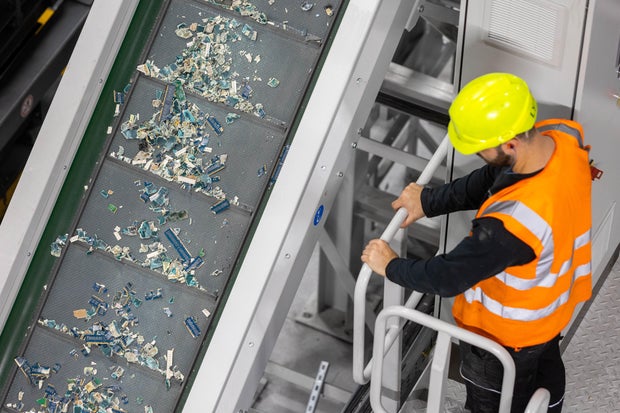The Royal Mint’s Sustainable Gold Extraction
The U.K.’s Royal Mint has taken a significant step towards sustainability by opening a factory dedicated to extracting gold from e-waste. This move aims to reduce the mint’s reliance on traditional mining practices and promote eco-friendly operations.
E-Waste Extraction Process
The new factory in Wales utilizes cutting-edge Canadian technology to extract gold from printed circuit boards commonly found in electronic devices such as phones, laptops, and televisions. This process is efficient and energy-friendly, as it occurs rapidly at room temperature.
The factory has the capacity to process 4,000 tons of printed circuit boards annually, and the recovered gold is already being used to create luxury jewelry by the mint.
Environmental Impact and Job Creation
The initiative is driving sustainable practices by tapping into urban mining, turning e-waste into a valuable resource. This forward-thinking approach not only promotes sustainability but also creates new job opportunities and skill development within The Royal Mint.
The global decline in cash usage has prompted this change, as fewer circulating coins mean reduced production requirements. By extracting gold from e-waste, the mint is not only preserving precious metals for future generations but also maintaining its craftsmanship and heritage.
Addressing E-Waste Challenges
According to the United Nations Institute for Training and Research, the generation of e-waste is increasing annually, with a significant portion remaining uncollected and unrecycled. This results in valuable natural resources being wasted and pollution risks to communities worldwide.
The Royal Mint’s new factory offers a sustainable solution to this environmental challenge by ensuring the recovery of valuable resources and appropriate treatment of other materials for further processing.
In addition to reducing environmental impact, the initiative by The Royal Mint also sets an example for other industries to explore innovative solutions for sustainability. By transforming waste into valuable resources, companies can contribute to a circular economy and minimize the exploitation of natural resources. The adoption of such practices not only benefits the environment but also aligns with shifting consumer preferences towards eco-conscious products and services.














